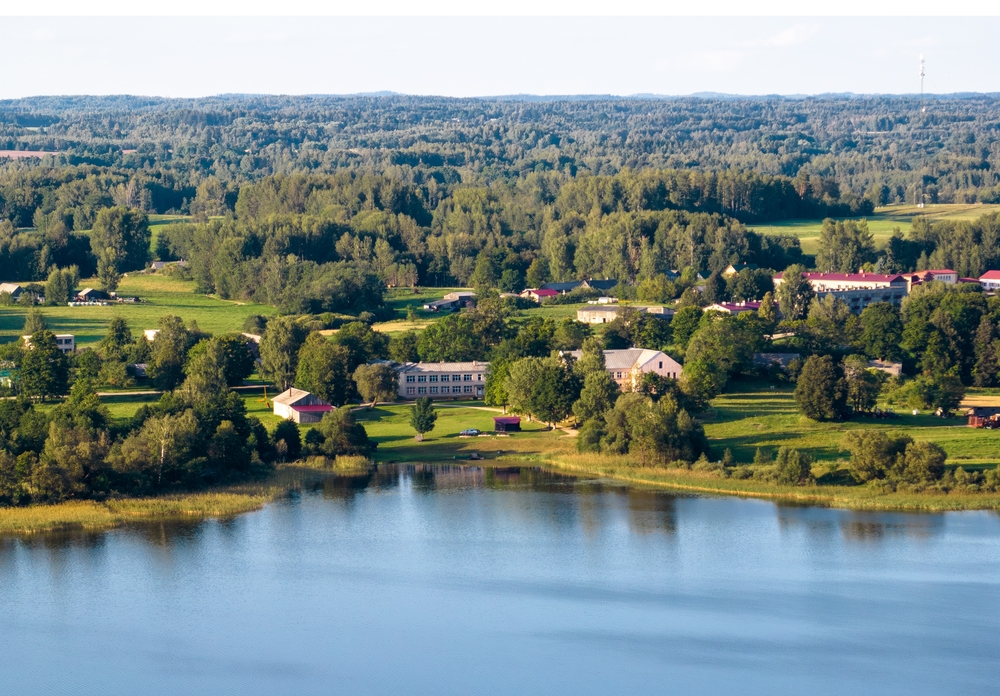![[RE-INDUSTRY] – Capacity building for re-industrialising regions in a globally decarbonizing economy](/sites/default/files/2025-03/umea-sweden.jpg)
[RE-INDUSTRY] – Capacity building for re-industrialising regions in a globally decarbonizing economy
Projects
A new approach for reindustrialising regions
January 2025 – December 2025
EUR 249,520.00
The geographical focus of this targeted analysis is on three rural and industrialised regions, i.e. Västernorrland and Västerbotten in Sweden and Österbotten in Finland. In a European context, the three regions are sparsely populated areas with an aging population and relatively high outflows of skilled young individuals. Similarly to many other rural and industrialised regions in Europe with middle to high income levels, the three regions have experienced development traps over a substantial period of time due to underperformance in, for example, development of income and productivity. These development trends increase the risk of hampering sufficient investments in new skills, economic activities and R&D to create future growth paths.
Simultaneously, increases in renewable energy production and the current emergence and relocation of energy intensive industries, including substantial amounts of FDIs, to regions like northern Scandinavia do not only open up regional development potentials but also create challenges in sustainable development. In fact, these development trends can have disruptive effects in geographies that can be considered as non-core regions. New challenges can arise in these regions such as a potential lock-in to resource dependence, the need for reskilling the local/regional workforce, skills-shortages in various economic sectors, lack of housing and transport networks, and deteriorating regional tax bases.
The three stakeholder regions, together with Region Norrbotten (SE), have significant natural resources like forest, water, iron ore and other minerals, as well as a high supply of green electricity. Against this background, the regions are experiencing an investment wave, including substantial amounts of FDIs, spanning over different sectors, from the establishment of completely new industries and value chains such as onshore and offshore wind production, solar power, battery manufacturing, hydrogen production and synthetic fuel production; to new investments and expansions of existing activities (e.g. paper and pulp). Hence, the availability of green energy enables the regions to enter a reindustrialisation phase, empowering them to potentially become motors of development in their countries and key regions for the green transition in Europe. Therefore, the reindustrialisation process can be an impactful way for the stakeholder regions to diversify and harness new potential for growth as well as to develop solutions, which, in turn, can enable other regions to lower their emissions.
The process of reindustrialisation leads to a need for new industrial and innovation policies in regions that place emphasis on the interplay between renewable energy sources and the emergence of new socio-technical systems providing new opportunities for employment and economic diversification. Therefore, evidence is now needed to support the development of a new take on industrial policy tailored for reindustrialising regions. This evidence shall take an innovative and proactive approach on international connectivity and foreign direct investments (FDI). The outcome of this targeted analysis can contribute to building dynamic policies at regional, national and EU-level supporting reindustrialising regions to regain their full potential.
The analysis to be conducted in the framework of this targeted analysis aligns with several ongoing streams of policy debate. Debates on the future of Cohesion Policy, for instance, raise the need for drawing more attention to industrialised regions at risk of being caught in development traps. These regions need to find new development pathways that are supported by dynamic policies which address both, globalisation and new geopolitical circumstances in proactive ways. Secondly, the European industrial policy debate reveals a need for evidence on implications for place-based innovation and ways for regions to engage in new industrial development activities in view of efforts towards strategic autonomy and technological sovereignty. Finally, the policy debate around new paths of regional industrial development shows a need to increasingly steer the attention from merely lowering emissions to regions’ capacity to create a green footprint and provide solutions for global decarbonisation. Such paths for new regional industrial development will be key for regional diversification and growth.
Policy Questions
- What type of renewable energy reliant/energy intensive industries (e.g. hydrogen, synthetic fuels and battery production) have the highest potential to create local and regional value (e.g. in terms of regional/local value added, number of direct or indirect employees, the potential to create industrial symbiosis, clusters, etc.) and contribute to a sustainable development of the regions?
- Within which sectors or sub-sectors, in addition to energy intensive industries (such as hydrogen, synthetic fuels and battery production), could the stakeholder regions with their large supply of renewable energy, become competitive in the near future (i.e. 3-10 years)?
- How can the stakeholder regions cooperate in relation to new investments and industrial establishments to create strategic inter-regional partnerships in developing key technologies and strengthening their positions in the global value chains?
Expected results
- Identification of different types of renewable energy dependent industries and investments with high potential for regional economic value creation and sustainability.
- New territorial evidence on the current changes in competitiveness and in prospects for growth and resilient regional development related to global value chains and FDI.
- Identification of specific local/regional factors that could influence the probability of achieving value creation in the stakeholder regions.
- Proposals of measures and/or tools to better and more effectively plan for and develop the green reindustrialisation process, both in the stakeholder regions and in similar regions in Europe, including recommendations for better stakeholder cooperation related to new investments and industrial establishments, and recommendations for better support to reindustrialising regions in a multi-level governance context.
Stakeholders
- Regional Council of Ostrobothnia (Finland)
- Region Västerbotten (Sweden)
More information
Contractor: Menon Economics (Norway)
Joint Partners: Spatial Foresight (Luxembourg), MDI (Finland), Ottoson Consulting (Sweden)
Contact
Michaela Gensheimer (Research and Policy Manager)
Ramona Tanasa ( Financial and Budget Manager)


